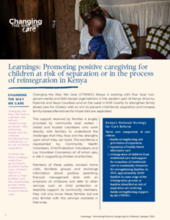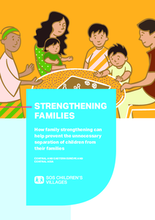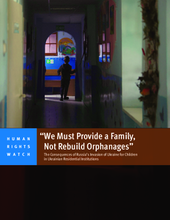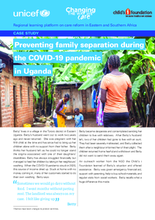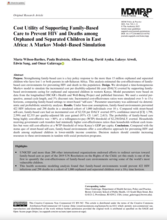Displaying 21 - 30 of 198
Maud de Boer-Buquicchio, CHIP President, discusses the measures in place to ensure that the many children that crossed the Polish/Ukraine border alone travelled with identity documents that would allow them to access child protection measures as they proceed on their journey.
This CTWWC brief describes the family strengthening approach and the people who work with families and children. It shares reflections from facilitators of parenting sessions and the caregivers, themselves.
This webinar was organized by India Alternative Care Network (IACN) in association with Miracle Foundation India, on April 28, 2023, with the objective to understand gatekeeping, it's components, tools, mechanisms, stakeholders and their role in gatekeeping and learning some promising practices at the primary and secondary levels of gatekeeping.
This document makes the case for the importance of investing in family strengthening in countries across Central and Eastern Europe and Central Asia. It has a particular focus on support for families so that any unnecessary separation of children from their families and placement in alternative care can be prevented.
This presentation is by the Children’s Trust Fund Alliance and their colleagues regarding a project they have been working on in partnership with parents to identify alternatives to CPS investigations.
This Human Rights Watch report documents risks to children from institutions in areas directly affected by the conflict as well as those evacuated to other areas of Ukraine or to European countries.
This learning brief was developed as part of Changing the Way We Care's 2022 annual report and shares learning on family-based alternative care from Guatemala, Moldova, India and Kenya and links the reader to additional CTWWC resources on the topic.
This case study tracks the impact of family support services to a Ugandan mother and her family during the COVID-19 pandemic in an effort to prevent family separation.
This UNICEF ESARO webinar discussed strategies for building strong families and communities and preventing child-family separation in the region.
Strengthening family-based care is a key policy response to the more than 15 million orphaned and separated children who have lost 1 or both parents in sub-Saharan Africa. This analysis estimated the cost-effectiveness of family-based care environments for preventing HIV and death in this population.

